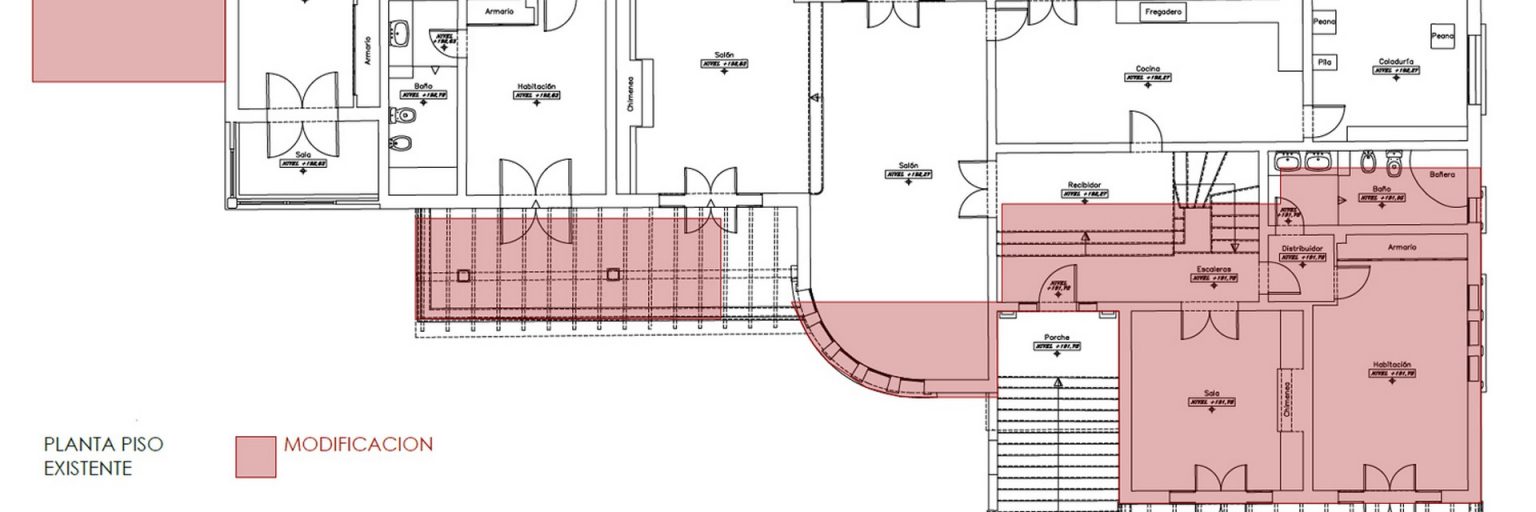Legalizaciones de Construcciones en Mallorca y Baleares
Legalisation of Buildings in Mallorca and the Balearic Islands

Differences Between a Legal, Legalised, Time-Barred, or Non-Conforming Property
The subject of building legalisation in Mallorca is one of the most confusing for both owners and buyers. Different concepts are often mixed up, such as the prescription (prescripción) of an infringement, urban planning legality, or the validity of certain official certificates.
An illegal building may be tolerated by the administration, and the urban planning infringement may have prescribed, meaning that a demolition order can no longer be enforced. In the German-speaking community, the term Bestandsschutz (“acquired rights”) is frequently used, but it must be clarified: in Spain, a building in this situation remains illegal.
- Legalisation on Suelo Urbano-Urban Land
A building is considered fully legal when it has both a Licencia de Obra (Building Licence) and a Licencia de Primera Ocupación (First Occupancy Licence, LPO), and the built state matches exactly what is authorised in those licences.
In some cases, buildings may have subsequent modifications not included in the original licence (extensions, enclosures, pergolas, redistributions, etc.). In such situations, a Licencia de Legalización (Legalisation Licence) may be applied for, provided that the building as a whole complies with current planning regulations.
This requires an as built project describing the constructed reality and demonstrating compliance with urban planning parameters (site coverage, floor area ratio, building heights, setbacks, etc.).
If the property complies with current parameters, legalisation is possible and the building becomes fully legal. If not, legalisation is denied and the property remains in an irregular situation.
- Legalisation on Suelo Rustico -Rural Land
Until recently, it was not possible to legalise recent constructions on rural land: only buildings constructed before 1956 could be exceptionally recognised.
With Law 3/2024 and Law 7/2024 (BOIB No. 21, 15 February 2025), a three-year period has been introduced during which certain existing buildings on suelo rústico común (common rural land) may be legalised:
- Not applicable to suelo rústico protegido (protected rural land) such as ANEI or ARIP. In municipalities like Calvià, more than 80% of rural land is protected.
- Legalisation is not possible if there is an ongoing or finalised sanctioning procedure.
- Only applies to constructions completed up to the year 2014.
- Requires sustainability reports and compliance with technical standards.
- Applicable fees and taxes must be paid.
- Prescription of Urban Planning Infringements
The Ley de Urbanismo de las Illes Balears (LUIB) establishes that infringements prescribe eight years after the completion of works, both on urban land and on suelo rústico común.
- If no sanctioning file has been opened within that period, the municipality can no longer impose fines or order demolition.
- However, prescription does not mean legality: the property remains in an irregular situation (fuera de ordenación). Only minimal maintenance works or safety measures are permitted, but no extensions, full refurbishments, or reconstruction after fire or collapse.
- In practice, this may reduce the property’s economic value.
- For German buyers this is relevant: the term Bestandsschutz has no equivalent in Spain. The closest concept is prescription, but a prescribed building is still illegal, even if the municipality can no longer order its demolition.
- Prescription does not apply on protected rural land.
- Certificates – Common Misunderstandings
There are certificates often associated with legality, but which do not change the irregular status of a property:
- Certificado de no infracción urbanística (Certificate of No Known Infringement): confirms that no sanctioning procedure is recorded at the time of issue. It does not imply legality, and undetected infringements may still exist.
- Certificado de prescripción (Prescription Certificate): confirms that the infringement is time-barred. This does not imply legality either.
- Land Registry inscription: a property may be registered after prescription, but registration does not validate planning legality.
- Practical Consequences
- An irregular property may be registered after prescription but will continue to face restrictions on refurbishment, reconstruction, or extension.
- Registration in the Land Registry does not grant planning legality.
- A certificate of “no known infringement” may facilitate a sale, but does not provide full legal certainty for seller or buyer.
- A building is only fully legal when it has a First Occupancy Licence and the built state corresponds exactly to what was authorised in it.
Conclusion
The issue of building legalisation in Mallorca requires the utmost precision.
A property can only be considered fully legal when it holds the relevant licences and the constructed state matches them exactly. Otherwise, it is essential to analyse whether the building is legalisable under current regulations or whether the infringement has prescribed, always distinguishing clearly between legality, prescription, and mere administrative tolerance.